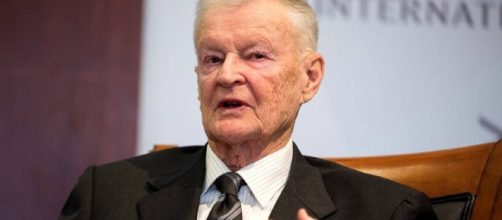President Jimmy Carter is not known to have had competence in any area, especially foreign policy, but he was lucky to have had Polish-born Zbigniew Brzezinski. While Carter, at least until the invasion of Afghanistan, preached piously about the inordinate fear of the Soviet Union, Brzezinski has a deep, and indeed personal, understanding of the Soviet threat. The Soviet Union had occupied the country of his birth after World War II. Poland and Russia had been blood enemies even before most of that country was occupied by Czarist Russia in the early 19th Century.
Advisor to Democratic presidents
The Washington Examiner notes that Harvard educated Brzezinski had advised Presidents Kennedy and Johnson as well as the 1968 campaign of Hubert Humphrey before becoming Carter’s national security advisor. His early strategy suggested an engagement with East European governments with a view of separating them from the Soviet Union as that country continued to stagnate. He was a supporter of the Vietnam War as part of a larger Cold War strategy opposing Soviet expansionism, not regarding the conflict as a nationalist uprising but rather as a proxy war with the USSR.
Jimmy Carter’s National Security Advisor
As Carter’s National Security Advisor, Brzezinski favored a relatively hard line against the Soviets.
He was the architect of Carter’s policy of fostering human rights in the Soviet bloc, a somewhat contradictory stance with that president’s other policy of pursuing détente on steroids with the USSR. Brzezinski also favored closer ties with China as a means of a counterbalance with the Soviets.
His hard line was vindicated when the Soviet Union invaded Afghanistan in 1979. Brzezinski was an early advocate for arming the Afghan mujahidin rebels as a way to undermine the Soviet occupation.
Turn to the left after the Cold War
Brzezinski was offered the chance to stay on as National Security Advisor to President Ronald Reagan, a position he declined. He did advise Reagan and President George H.W. Bush in a number of foreign policy and national security matters.
After the fall of the Soviet Union, Brzezinski took a hard turn to the left. He opposed both the 1990-91 Gulf War and the war on terror, including the war in Iraq. He supported the election of President Barack Obama in 2008. When Israel indicated that it might strike against Iranian nuclear facilities, Brzezinski suggested that the United States might oppose such a move militarily if necessary. He railed against the “Israel lobby.” He supported the intervention in Libya. Brzezinski also warned against the rising influence of Vladimir Putin.
Zbigniew Brzezinski died at the age of 89. He constitutes one of the last of the Democrat cold warriors who had opposed the McGovernite slide into appeasement by that party.
Whatever his missteps in other aspects of foreign policy, he remains a giant in the history of what John F. Kennedy called the long, twilight struggle against the Soviet Union. Brzezinski was a contributor to the collapse of that evil empire.


